“You are never alone.”
Located in France, along the Garonne River is Ubisoft Bordeaux, a studio founded in 2017 that has continued to refine and perfect the Anvil Engine that powers a great deal of Ubisoft Originals. They are also a studio that has aided in development of the recent entries in Ghost Recon, Rainbow Six Extraction, and led development duties on the Assassin's Creed Valhalla: Wrath of Druids DLC, among several other projects. So, when it was announced the studio would helm their first full game within the Assassin's Creed franchise, let alone one that returns to its more assassin-focused roots, it would be a chance for the studio to step up and become more than just developmental support, they could become Ubisoft's secret weapon.
Assassin's Creed Mirage is a full return to form, especially after the series dove into various time periods where its assassin nature felt largely tacked on. From Egypt to ancient Greece, to the shores of Norway and beyond, the series took a very Witcher approach to its gameplay and core systems, causing some fans to be at odds with its larger and more RPG-focused approach. While Odyssey, Origins, and Valhalla were my personal favorite entries of the entire series, with a shout-out to Black Flag, I could see why longtime fans of the original games were disappointed with the series changing into a very lengthy RPG-driven adventure and losing a bit of its original identity in the process.
Originally planned as DLC for Valhalla, to tell the tale of its guest star assassin in Basim Ibn-Ishaq, it was then greatly expanded upon to be its own standalone adventure. While it still has some massive open areas and one of the most dense environments Ubisoft has ever crafted in the Round City; its story, action, and cast of characters are of a much smaller scale than we've seen in over a decade. The story of Basim and his journey to become the master assassin we met in Valhalla is intriguing, exciting, and packed full of some of the series best moments. Mirage is no false vision in the sand, it's the real deal.
When it comes to Basim himself, and the role he played within Valhalla, I was curious how Mirage would handle the character and how much it would rely on the player’s knowledge of the previous main series adventure. Mirage takes place in 861 CE, 11 years before the events of Valhalla. While Mirage is a completely standalone experience, the story does provide some glimpses into what lies in store for Basim but does so in a way that entices players to possibly play through Valhalla or reward those who already know of Basim's journey.
As Basim is the main character of this adventure, he will also have a great cast to work with. Lee Majdoub does a wonderful job as the character, especially as his journey leads him toward answers that have had their questions mysteriously hidden from him. His journey from thief to assassin works extremely well due to Lee’s fantastic performance. The same can be said about The Expanse’s Shohreh Aghdashloo’s role here as Rashan, Basim’s mentor. Her unmistakable voice is present across the story as Rashan becomes heavily involved in this quest against the Order, making her a pivotal character in Basim’s journey. I’ll also point out that apart from a few characters that tend to play up their personalities a bit too much, the accents and performances provide a much-needed authenticity to bring Baghdad alive.
While Mirage is taking the series back to its more assassin-focused roots, it still brings with it some of the series’ modern additions. From a loot system of various armor sets and weapons, each with their own stats, perks, and numerous upgrade bonuses, to a skill tree to flesh out particular skills to make you a more cunning assassin. One of my favorite additions across the series was the Cult system introduced in Assassin’s Creed Odyssey, which had you systematically hunting down targets based on learning clues about their identity. While that system is present here, it is greatly simplified to assist in tracking down key members of the Order of the Ancients, a precursor faction to the Templars and your central antagonists throughout this roughly 20-25 hour adventure.
As Basim, you’ll explore the city of Baghdad and its surrounding areas as you attempt to unravel the mystery surrounding the identities of the Order of the Ancients. While your journey begins in Basim’s hometown in Anbar, as well as a trip to the legendary Alamut, the bulk of your time is spent within the Round City of Baghdad and its three varied districts; Karkh, Harbiyah, and Abbasiyah. Throughout these locations, you’ll scurry from rooftop to rooftop, hiding in plain sight amongst its citizens, to climbing and parkouring around every square inch of this densely packed environment.
The Round City itself has few exits that are used to travel to its outer districts, each that has its own design, function, traits, and aesthetic. Inside the walls of the Round City features a wealth of stone and wood houses, lush gardens, and fountains, as well as the Caliphal Palace and its own impeccable gardens. And in typical fashion, you’ll climb to the top of various structures and towers to take in the gorgeous view of the city that can seem to stretch on for miles on end.
When it comes to its three districts, you’ll swap that glamor and expensive lifestyle for one of a dull and grim atmosphere within the walls of the Harbiyah district as it is the home to its slaves, dockers, orphans, and workers. This industrial zone is where crime can flourish and spread. The market district of Karkh is where commerce comes to one with the coin to take advantage of it. From the crowded Bazaar of the Abbasid Empire to the numerous shops that fill its streets, you’ll find a bargain or two through trading in goods coming in from China, Italy, or Africa. Lastly, you have the cultural district of Abbasiyah, which is the calm and peaceful home of the House of Wisdom. This is where Scholars, Philosophers, Scientists, and Astronomers gather knowledge from the entire Empire and beyond. This is also where you’ll find the most luxurious goods found within the Four Markets.
While the city of Baghdad is where the bulk of this story follows, outside its walls across its wilderness will reward you for exploring. Granted, few of its side quests or story moments require you to take in these sights, but you’ll find several of the Tales of Baghdad stories that allow Basim to lend his aid. While these quests are certainly worth doing, I didn’t find them as interesting as the contracts you’ll accept within the city. These contract quests were consistently engaging as you would often have targets to kill, items to procure, or even a friendly race across the city against a fellow Hidden One. While they don’t compare to the central story, they often provide a ton of experience, skill points, armor sets, and weapons to add to your collection.
As you explore Baghdad, you’ll find many of those items freely about in various chests, jars, and containers, some of them requiring a bit of exploration to find the path to them. From carrying flammable jars up and along railings, ropes, and edges to eventually hurling them at broken walls to find your payday. Each location you’ll break into can also contain notes that further along the story, its lore, to numerous upgrade items to enhance your armor, weapons, and items. There is a great deal of depth here should you want it, with collectibles, trinkets, and more to find, steal, or pickpocket as you make your way through the streets or high atop its foundation.
Pickpocketing is a crucial element as you’ll earn a great deal of coin and items to sell as you take part in a very simple mini-game. In fact, you can work through the skill tree for Basim to skip the mini-game entirely for some of the easier marks, allowing it to feel like you’ve upgraded your ability. This is also how you’ll earn the various currencies that aid Basim in his quest. Those who run goods out of Baghdad can be bribed to lower their prices by trading them special market tokens whereas other tokens can be used to pay off musicians to distract guards or pay merchants to keep your moves hidden or even pay mercenaries to attack guards while you slip past their defences. There are also currencies you’ll earn that can unlock maps that reveal various collectibles around the map.
Another new addition is the Notoriety system that changes how both guards and the public react to your presence. If you are seen committing illegal actions, such as killing or pickpocketing, civilians will yell for the guards to arrest you. Guards will take more notice of you as well as wanted posters will be placed up around the city. Granted, you can walk up to them and rip them off the wall, but each tier of your notoriety level will increase the frequency of these alerts, with the final tier summoning an Elite Shakiriyya guard that is considerably a greater challenge than any of the enemies you’ll encounter. Thankfully, defeating them in battle removes your notoriety and allows you to revert back to being all but invisible. And with the return of social blending, it is a system that can also reduce your notoriety level as well, making you often hide in plain sight.
Throughout your time in Baghdad, as you progress throughout the story, you’ll unlock four Bureaus to use as a base of operations. It is here where you will progress the story through several cutscenes as you interact with the cast, to unlocking new tools, upgrading them, as well as refilling your ammunition for those tools. You’ll also accept contracts here as well, with more being unlocked as you complete them. Your character progression is handled one of two ways, you’ll have various ranks that Basim will earn and those are not built over an XP loop, they are instead more linear and story-driven.
However, you will earn skill points when completing activities and main story missions that allow you to enhance Basim’s abilities, spread out across his assassin skills and tool proficiency, his eagle, Enkidu, as well as a new combat skill, the Assassin’s Focus, which is a way of performing a sequence of quick assassinations to unassuming targets. This skill can be replenished as you perform additional stealth kills. It’s a very flashy attack that can come in handy when you need to thin the herd.
The tools that Basim will have at his disposal really do come in handy. From his throwing daggers to a blow dart, to noisemakers and smoke bombs, there is a decent variety here to work with, especially as you can dictate how their upgrades work and how many of those upgrades can function at once if you unlock that particular feat in the skill tree. I upgraded the blow dart to make my targets go crazy as they would then start attacking other guards. This became incredibly helpful if my mission was to not kill anyone. Since my hand was free of any blood, it was still considered a win.
Combat in Assassin’s Creed titles has sometimes been a last resort unless, of course, you decide to take more encounters on firsthand. The stealth gameplay here is as tight as has ever been with numerous avenues to live out your assassin lifestyle. However, sometimes you do need to break some skulls and slash your frustrations away and the combat options here, when combined with your tools, can really satisfy, even if I am not the biggest fan of the new stamina system, which drains with every attack or dodge you perform.
Basim will have access to light attacks by pressing RB and holding it will perform a heavy attack. You can also dodge attacks, but Basim can also parry them instead, creating an opening for a counter-attack. Enemies that glow yellow can be parried, but those that glow red will need to be dodged out of the way of. Larger enemies that cannot be attacked from the front can be dodged around as they perform those attacks and leave their backside vulnerable. However, those brutes can also be downed easily by using your tools, such as the poison traps that make them a helpless target as you stand over them, blade in hand.
Combat feels fairly good and you certainly have a good amount of options to fall back on should you need to drop a smoke bomb and retreat, finding refills of your ammo and health as you then run for your life. However, as mentioned, combat should always be a last resort as your stealth kills are far more efficient and certainly work in the game’s favor as digging into your toolkit as a master assassin.
Basim will also have the typical assassin vision that reveals chests and various enemies, to being able to tag them alongside his helpful eagle in Enkidu. Granted, some locations will have a marksman that targets your bird, so you’ll need to deal with him should you require their aid to mark enemies, scan or locate objectives, or more, depending on where you are at in the skill tree.
With Assassin’s Creed Mirage being a slightly reduced title cost-wise, as well as the studio being less than half of what we typically see put behind for a main series Assassin’s Creed title, I am still rather impressed with what Ubisoft Bordeaux has crafted here. That said, while environments are very impressive, its human element can be wildly inconsistent, mainly when it comes to the detail of its character models, their animations, and facial expressions during non-story conversations. This results in the game having a bit of a budget limitation feel to it when compared to the main series of games that have come before it, especially Valhalla, which looks considerably better in this regard. While everything looks good during gameplay, it is when the game focuses on its characters in tight and closer shots that you’ll notice this for sure.
My time with Mirage did have a few hiccups when it came to certain systems and some overall technical performance. Areas like the Bazaar ran considerably poorly with some huge framerate dips that went to nearly single digits. Thankfully, this was the only area where I really ran into this sort of frame drop. That said, I have not tested that area with the new patch that just dropped, and this issue is part of the upcoming performance patches. And despite Baghdad being a massive location with some incredible draw distance, I didn’t notice any significant pop-in apart from one single instance of a building appearing far away in the distance during a tower synchronization.
When it comes to issues with the systems or the game itself, Mirage still has the typical parkour and climbing problems present across the series. This is anything from a lack of options climbing up certain walls that brings the pacing of an intense escape to a halt to having to hold down B to release your grip, often getting you caught in the process due to how slow it can feel. I also don’t understand why some ledges can be easily hopped down from but others require a lengthy jump or a need to slowly climb down them. I also found that Basim’s animations are sometimes a bit overdone when you are trying to line up a climb into a window as he would often grab onto the side and climb up instead of grabbing the ledge of the window itself. These issues are not just a Mirage problem but ones that have existed throughout the entire series.
Assassin’s Creed Mirage is a really impressive outing for Ubisoft Bordeaux as I didn’t think I would have really taken to a game built around Basim’s rise from common street thief to master assassin, but I was sold on this due to some great stealth systems, its investigation board, strong performances, and the fully realized Baghdad that really brought this adventure to life. It carries with it some of the issues present across the series but its return to form and its reliance on a bit more simplicity across its offerings does make for a truly engaging and focused experience that can exist alongside the more dense and RPG-focused outings that make up its main series. Personally, Ubisoft Bordeaux has crafted one of my favorite entries in the series and I do hope they get to revisit this world and bring their own unique spin on it because they have certainly earned it.
Developer - Ubisoft Bordeaux. Publisher - Ubisoft. Released - October 5th, 2023. Available On - Xbox One / Series X/S, PS4/PS5, PC. Rated - (M) - Blood and Gore, Drug Reference, Intense Violence, Strong Language. Platform Reviewed - Xbox Series X. Review Access - A review code was provided by the PR/publisher for the purpose of this review.


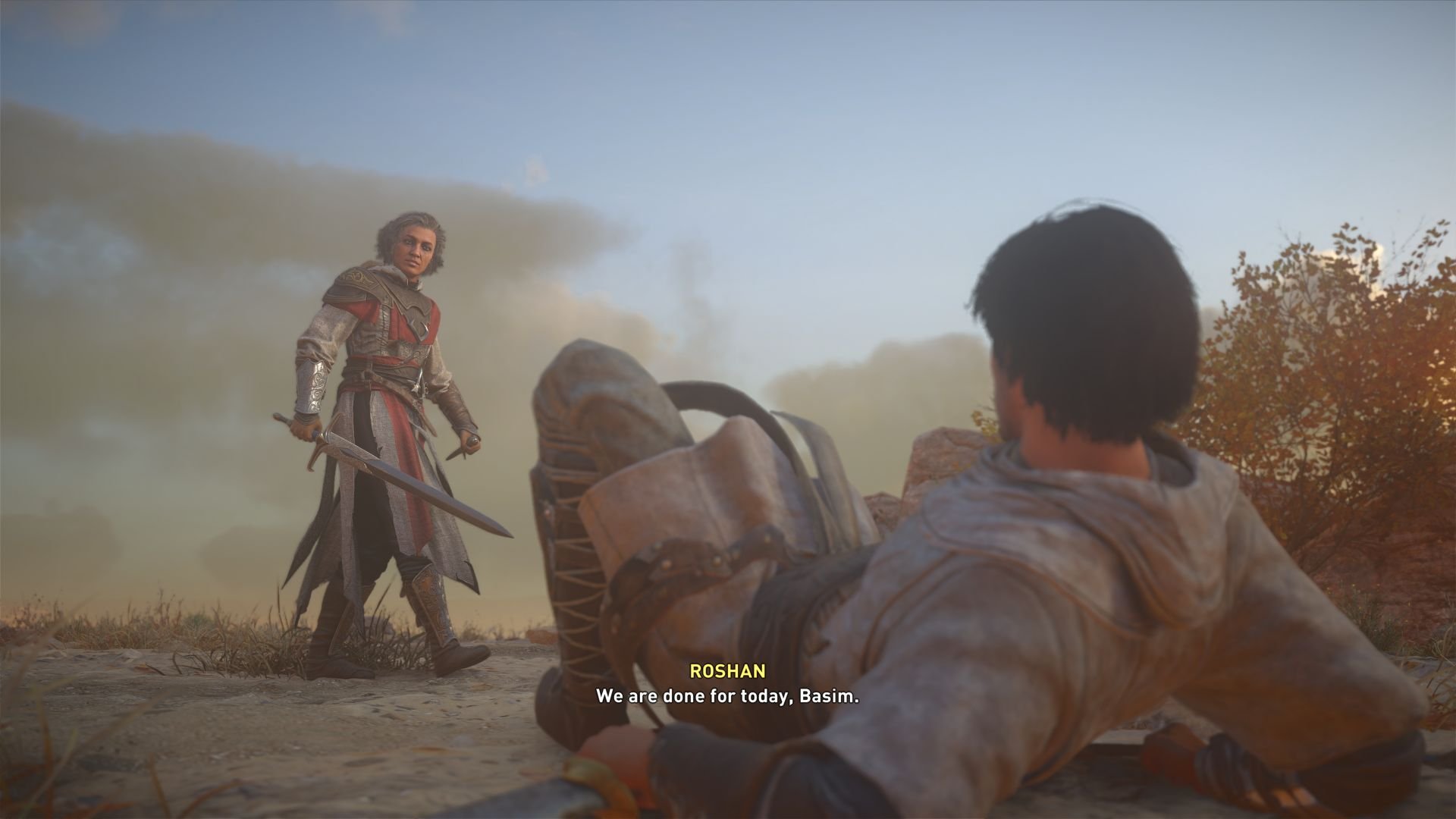


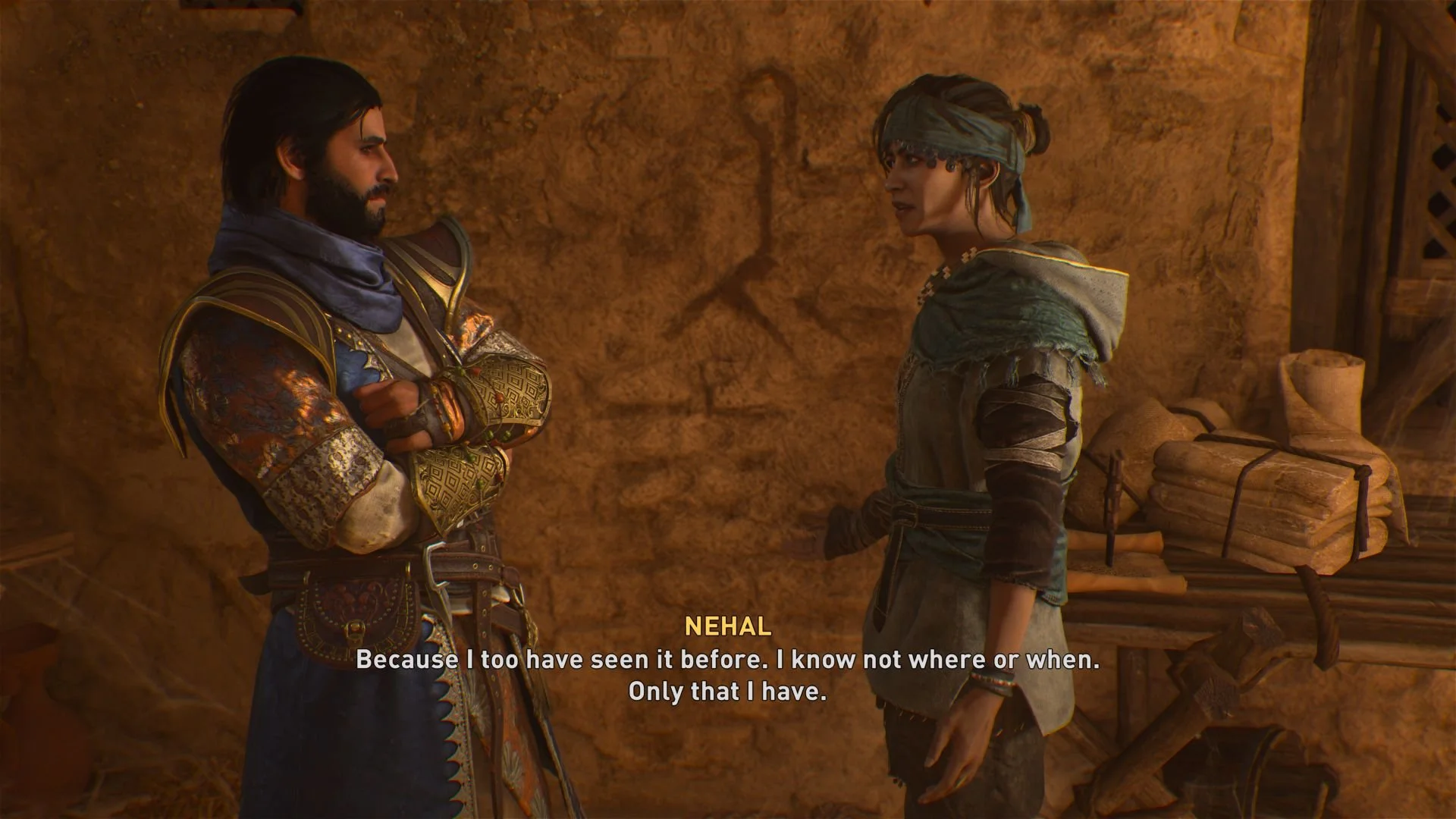

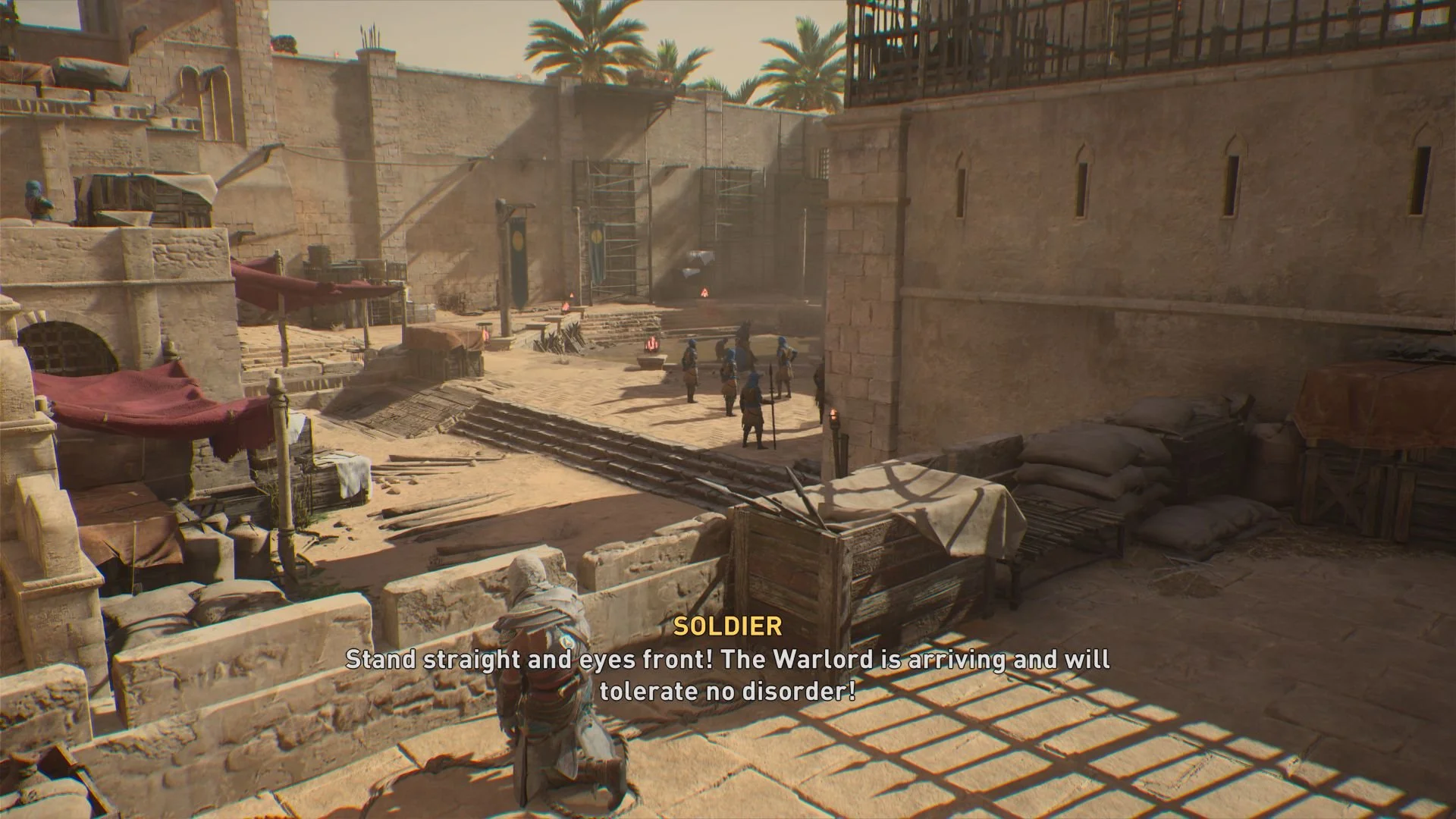
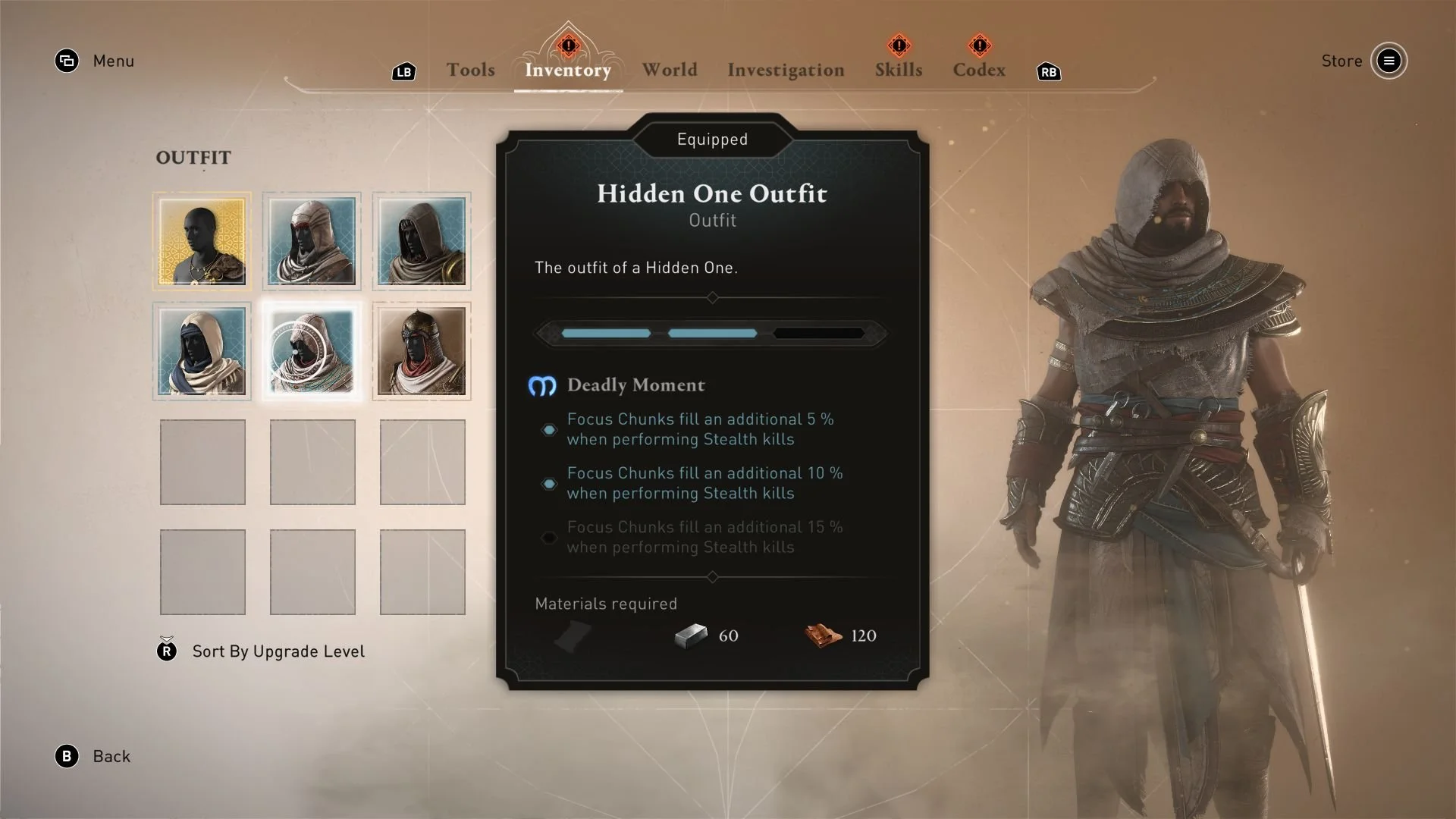

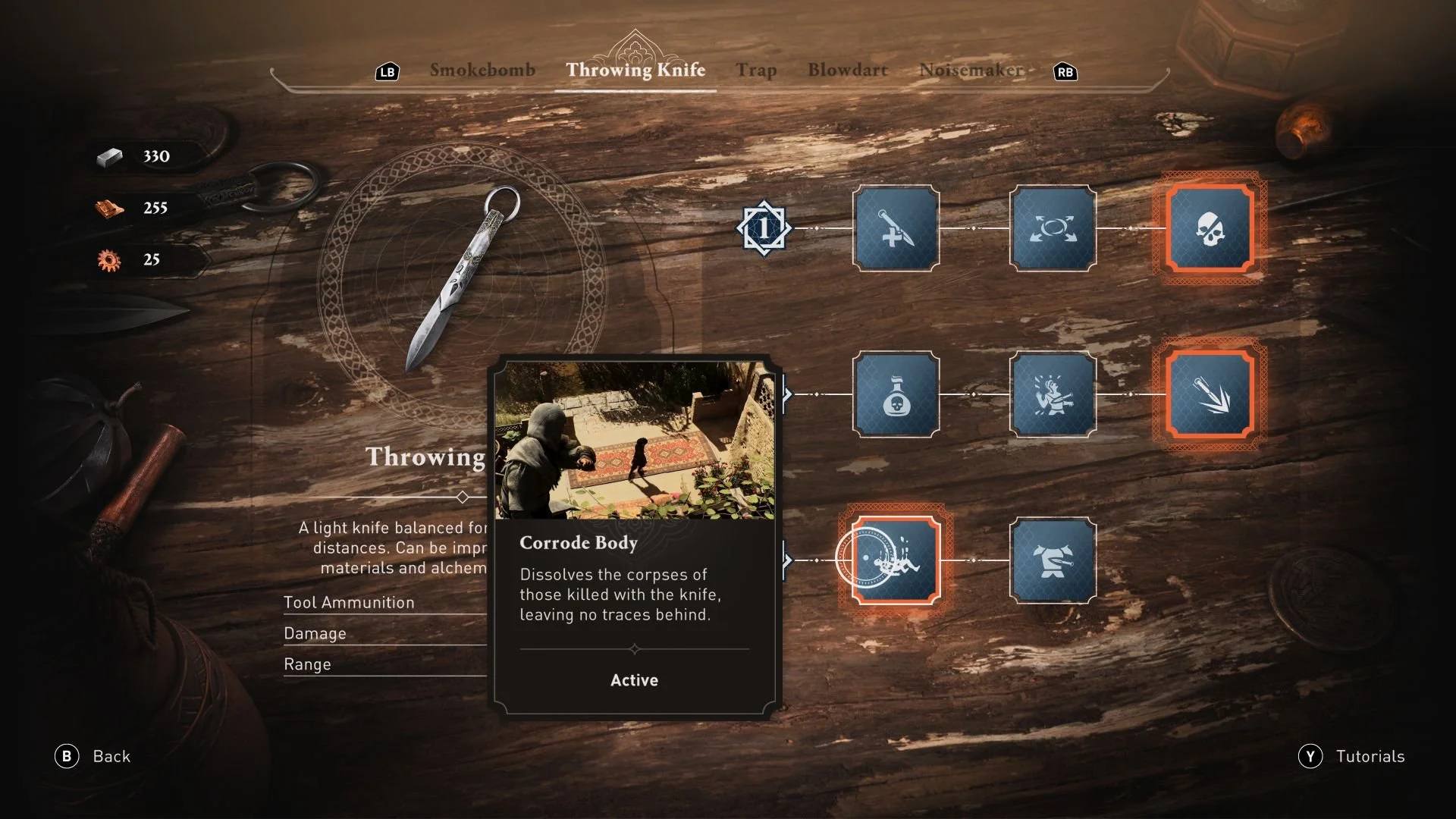
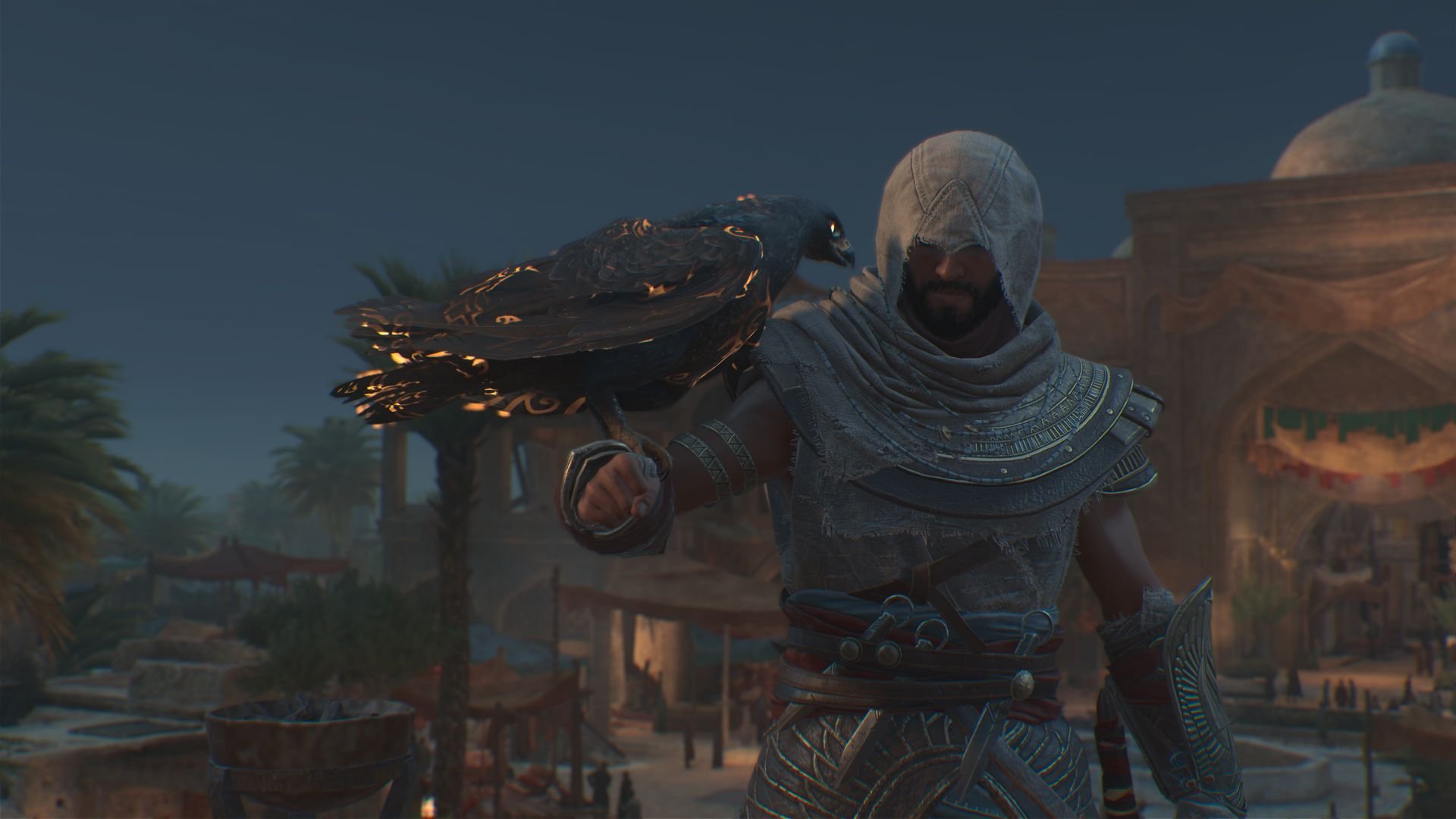
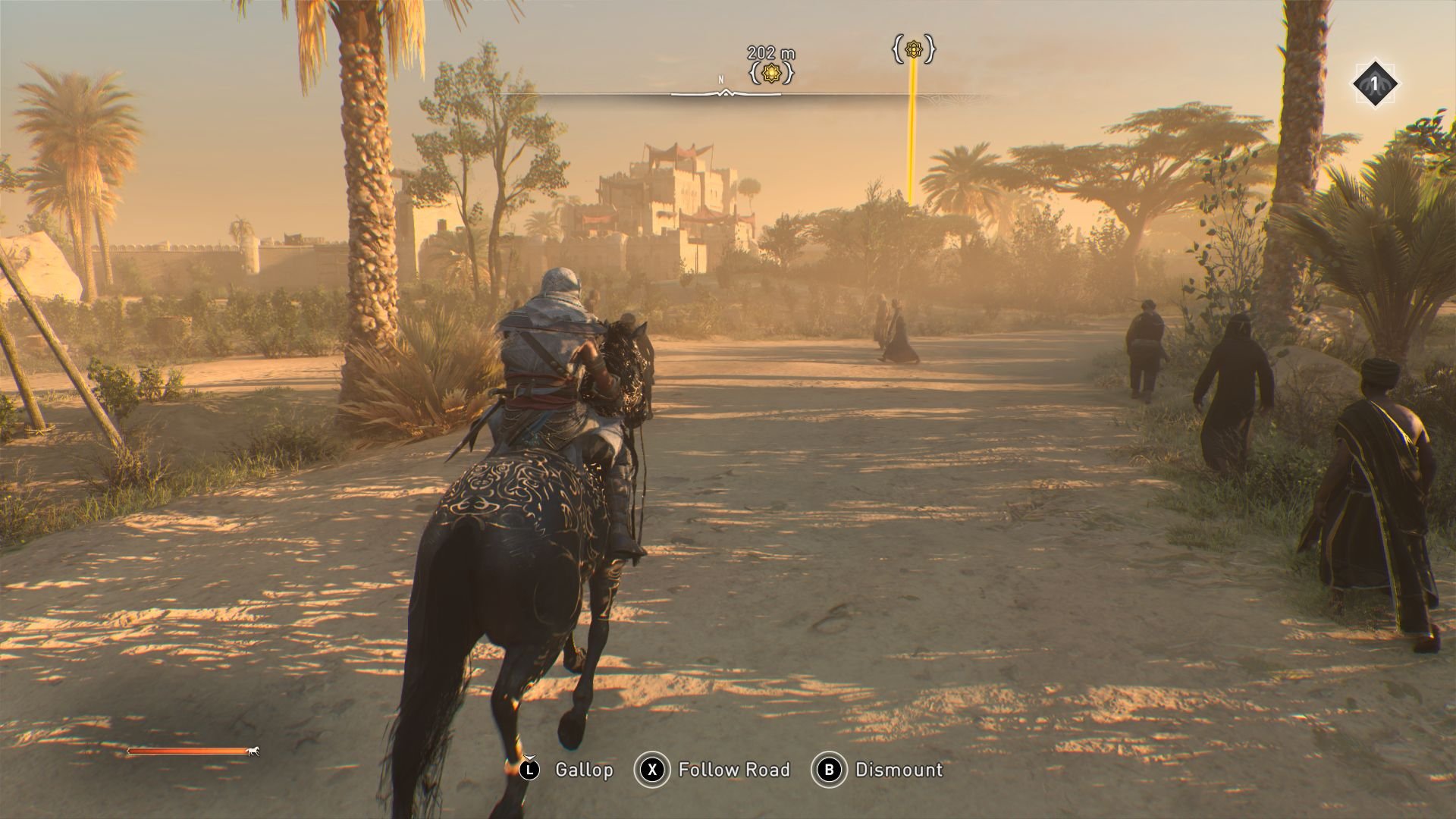




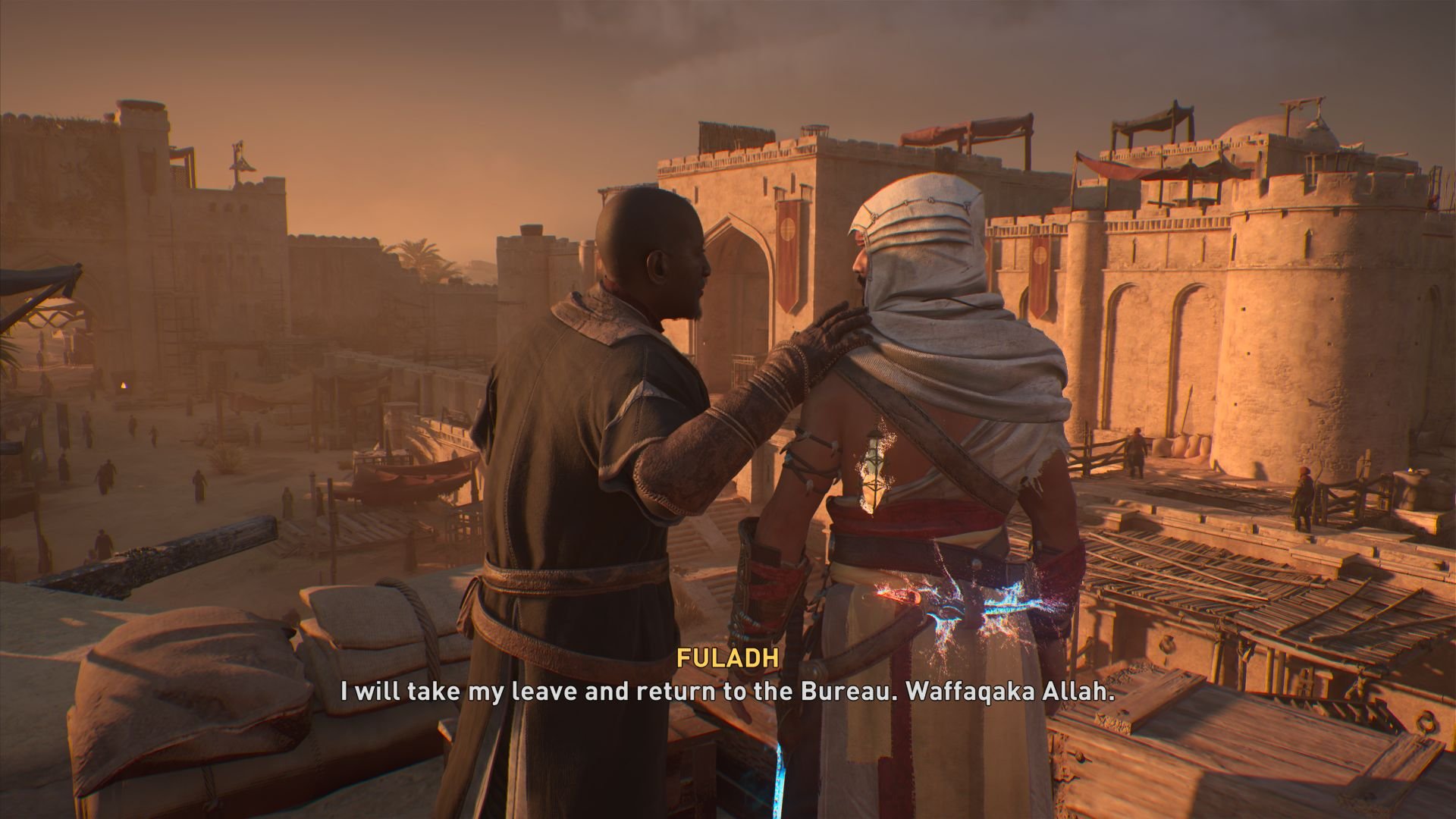


Jeff is the original founder of Analog Stick Gaming. His favorite games include The Witcher III, the Mass Effect Trilogy, Hi-Fi Rush, Stellar Blade, Hellbade: Senua’s Sacrifice, and the Legend of Heroes series, especially Trails of Cold Steel III & IV.